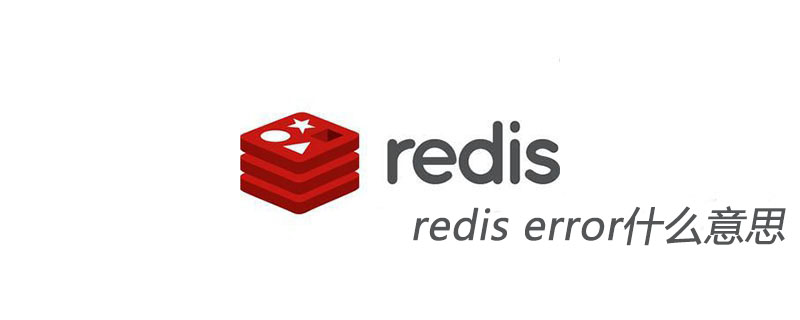Redis is a high-performance key-value database. The emergence of redis has largely compensated for the shortcomings of key/value storage such as memcached, and can play a very good supplementary role to relational databases in some situations. It provides Java, C/C, C#, PHP, JavaScript, Perl, Object-C, Python, Ruby, Erlang and other clients, which is very convenient to use.

#How many keys can redis store?
Officially said that a single instance can handle 250 million keys, reference link: https://redis.io/topics/faq, the following is the original words:
What is the maximum number of keys a single Redis instance can hold? and what the max number of elements in a Hash, List, Set, Sorted Set?
Redis can handle up to 2^32 keys, and was tested in practice to handle at least 250 million keys per instance.
Every hash, list, set, and sorted set, can hold 2^32 elements.
In other words your limit is likely the available memory in your system.
Recommended Manual:Redis Command Operation Chinese Manual
The storage capacity of different data types will be different:
Original address: https://redis.io/topics/data-types
Strings type: A String type value can store up to 512M
Lists type: The maximum number of elements in the list is 2^32-1, which is 4294967295.
Sets type: The maximum number of elements is 2^32-1, which is 4294967295.
Hashes type: The maximum number of key-value pairs is 2^32-1, which is 4294967295.
Sorted sets type: similar to Sets type.
Recommended related articles:
1.How many keys can a redis instance store
2.Redis determines whether the key exists
Related video recommendations:
1.Yan Shiba redis video tutorial
The above is the detailed content of How many keys can redis store?. For more information, please follow other related articles on the PHP Chinese website!
 es和redis区别Jul 06, 2019 pm 01:45 PM
es和redis区别Jul 06, 2019 pm 01:45 PMRedis是现在最热门的key-value数据库,Redis的最大特点是key-value存储所带来的简单和高性能;相较于MongoDB和Redis,晚一年发布的ES可能知名度要低一些,ES的特点是搜索,ES是围绕搜索设计的。
 一起来聊聊Redis有什么优势和特点May 16, 2022 pm 06:04 PM
一起来聊聊Redis有什么优势和特点May 16, 2022 pm 06:04 PM本篇文章给大家带来了关于redis的相关知识,其中主要介绍了关于redis的一些优势和特点,Redis 是一个开源的使用ANSI C语言编写、遵守 BSD 协议、支持网络、可基于内存、分布式存储数据库,下面一起来看一下,希望对大家有帮助。
 实例详解Redis Cluster集群收缩主从节点Apr 21, 2022 pm 06:23 PM
实例详解Redis Cluster集群收缩主从节点Apr 21, 2022 pm 06:23 PM本篇文章给大家带来了关于redis的相关知识,其中主要介绍了Redis Cluster集群收缩主从节点的相关问题,包括了Cluster集群收缩概念、将6390主节点从集群中收缩、验证数据迁移过程是否导致数据异常等,希望对大家有帮助。
 Redis实现排行榜及相同积分按时间排序功能的实现Aug 22, 2022 pm 05:51 PM
Redis实现排行榜及相同积分按时间排序功能的实现Aug 22, 2022 pm 05:51 PM本篇文章给大家带来了关于redis的相关知识,其中主要介绍了Redis实现排行榜及相同积分按时间排序,本文通过实例代码给大家介绍的非常详细,对大家的学习或工作具有一定的参考借鉴价值,希望对大家有帮助。
 详细解析Redis中命令的原子性Jun 01, 2022 am 11:58 AM
详细解析Redis中命令的原子性Jun 01, 2022 am 11:58 AM本篇文章给大家带来了关于redis的相关知识,其中主要介绍了关于原子操作中命令原子性的相关问题,包括了处理并发的方案、编程模型、多IO线程以及单命令的相关内容,下面一起看一下,希望对大家有帮助。
 实例详解Redis实现排行榜及相同积分按时间排序功能的实现Aug 26, 2022 pm 02:09 PM
实例详解Redis实现排行榜及相同积分按时间排序功能的实现Aug 26, 2022 pm 02:09 PM本篇文章给大家带来了关于redis的相关知识,其中主要介绍了Redis实现排行榜及相同积分按时间排序,本文通过实例代码给大家介绍的非常详细,下面一起来看一下,希望对大家有帮助。
 一文搞懂redis的bitmapApr 27, 2022 pm 07:48 PM
一文搞懂redis的bitmapApr 27, 2022 pm 07:48 PM本篇文章给大家带来了关于redis的相关知识,其中主要介绍了bitmap问题,Redis 为我们提供了位图这一数据结构,位图数据结构其实并不是一个全新的玩意,我们可以简单的认为就是个数组,只是里面的内容只能为0或1而已,希望对大家有帮助。
 redis error什么意思Jun 17, 2019 am 11:07 AM
redis error什么意思Jun 17, 2019 am 11:07 AMredis error就是redis数据库和其组合使用的部件出现错误,这个出现的错误有很多种,例如Redis被配置为保存数据库快照,但它不能持久化到硬盘,用来修改集合数据的命令不能用。


Hot AI Tools

Undresser.AI Undress
AI-powered app for creating realistic nude photos

AI Clothes Remover
Online AI tool for removing clothes from photos.

Undress AI Tool
Undress images for free

Clothoff.io
AI clothes remover

AI Hentai Generator
Generate AI Hentai for free.

Hot Article

Hot Tools

SublimeText3 English version
Recommended: Win version, supports code prompts!

Safe Exam Browser
Safe Exam Browser is a secure browser environment for taking online exams securely. This software turns any computer into a secure workstation. It controls access to any utility and prevents students from using unauthorized resources.

Zend Studio 13.0.1
Powerful PHP integrated development environment

DVWA
Damn Vulnerable Web App (DVWA) is a PHP/MySQL web application that is very vulnerable. Its main goals are to be an aid for security professionals to test their skills and tools in a legal environment, to help web developers better understand the process of securing web applications, and to help teachers/students teach/learn in a classroom environment Web application security. The goal of DVWA is to practice some of the most common web vulnerabilities through a simple and straightforward interface, with varying degrees of difficulty. Please note that this software

mPDF
mPDF is a PHP library that can generate PDF files from UTF-8 encoded HTML. The original author, Ian Back, wrote mPDF to output PDF files "on the fly" from his website and handle different languages. It is slower than original scripts like HTML2FPDF and produces larger files when using Unicode fonts, but supports CSS styles etc. and has a lot of enhancements. Supports almost all languages, including RTL (Arabic and Hebrew) and CJK (Chinese, Japanese and Korean). Supports nested block-level elements (such as P, DIV),






